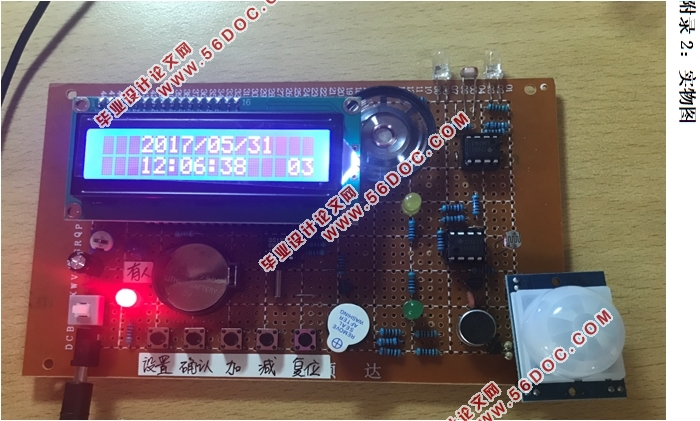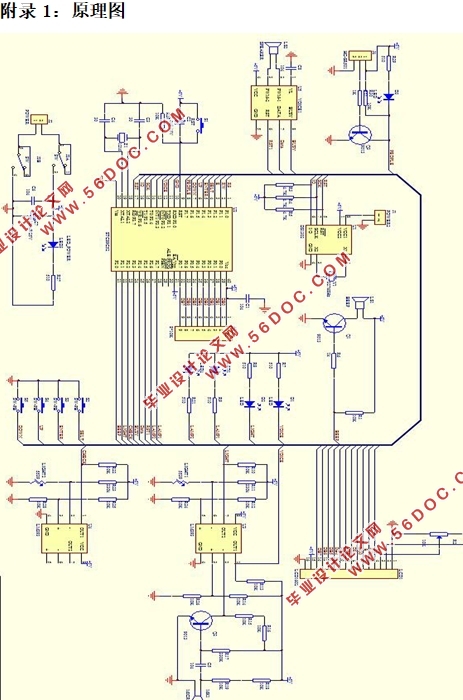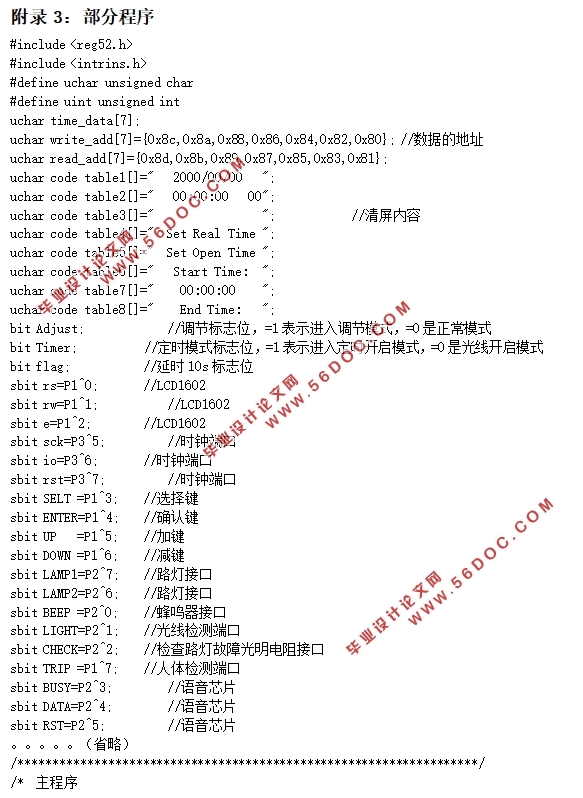基于STC89C52单片机的智能路灯控制系统设计(附原理图,实物图,程序代码)(任务书,开题报告,论文12000字)
摘 要
本文详细介绍了基于STC89C52单片机的智能路灯控制系统设计。该单片机智能路灯控制系统可以实现定时开启、关闭路灯,同时具有声控、光控、红外感应以及故障报警,整点报时的功能。智能路灯控制系统硬件主要为9个不同的模块构成,它们分别是:STC89C52控制模块、声音检测模块、光线检测模块、蜂鸣器报警模块、红外感应模块、语音整点报时模块、故障检测模块、时钟电路模块和LCD显示模块。软件部分选用Keil作为开发平台,用C语言编写程序实现。并针对硬件模块编写程序和流程图进行分析介绍。最后,说明此系统具体调试的过程,归纳毕业设计进程中如何分析解决困难。通过软硬件配合实现对路灯的智能控制,绿色环保,成本效益高,符合可持续发展的观念。
关键词:自动感应 路灯 单片机 智能化
Design of Intelligent Street Light Control System Based on STC89C52 Single Chip Microcomputer
Abstract
This paper mainly introduces the intelligent street light control system design based on single chip microcomputer. The single-chip intelligent street light control system can be achieved regularly turn on the street lamp, turn off the street lamp. But also with voice control, light control, infrared sensor, failure warning and hourly chime function. This design the hardware part consists of 9 modules, which are: STC89C52 single-chip microcomputer control module, sound detection module, light detection module, buzzer alarm module, infrared sensor module, hourly chime module, fault detection module, clock circuit module and LCD display module. Keil as a development platform, written in C language program. Analyze and introduce the preparation of hardware modules and flow chart. Finally, the summary of the system debugging process, summed up the design process to analyze how to solve the problem. Through software and hardware to achieve the intelligent control of the street, energy saving, cost-effective, with application value.
Key Words: Automatic induction; Street lamp; MCU; Intelligent



目录
摘 要 I
Abstract II
第一章 绪论 1
1.1 课题研究背景 1
1.2 国内外发展状况 2
1.3 研究的目的与意义 3
1.4 论文的组织结构 3
第二章 系统总体方案设计 5
2.1 设计任务要求 5
2.2 系统设计思路 5
2.3 系统总体框架 6
2.4 主要模块的方案选择 8
第三章 系统硬件设计与实现 10
3.1 主控模块基本电路 10
3.2 按键电路 11
3.3 红外感应电路 12
3.4 声音检测电路 13
3.5 光线检测电路 13
3.6 故障检测电路 14
3.7 蜂鸣器报警电路 15
3.8 语音整点报时电路 16
3.9 时钟电路 17
3.10 LCD1602显示电路 18
第四章 软件设计 19
4.1 软件主流程 19
4.2 开关灯控制程序设计 21
4.3 故障检测报警程序设计 22
4.4 人体红外感应程序设计 24
第五章 系统调试与总结展望 26
5.1 硬件调试 26
5.2 软件调试 27
5.3 调试结果 28
总结 32
参考文献 33
致谢 34
附录1:原理图 35
附录2:实物图 36
附录3:部分程序 37
|







